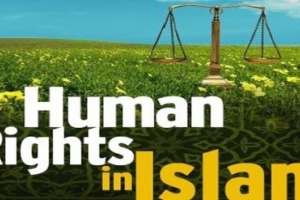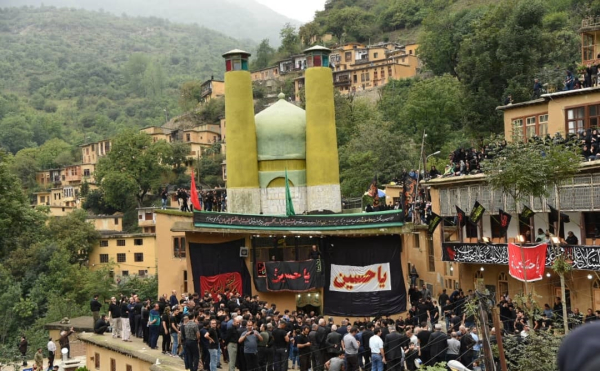Welcome to the 33rd weekly episode of the series Islamic Human Rights. Today, we speak of freedom of press.
Previously, we spoke of the topic of freedom of expression and its boundaries in the view of the divine religion of Islam. Generally speaking, in the view of Islam, freedom should be maintained in all affairs as long as it is not in contrast to the material and spiritual interests of mankind.
In Islamic culture, viral thoughts are considered to be much more dangerous than physical plagues and ailments. Is a virus, which threatens the fifty year life of a human being more dangerous, or an idea which destructs the eternal life of mankind?
Today, we study the topic of freedom of press.
One of the freedoms which has mainly discussed in modern times, is freedom of expression and freedom of press. The communications industry advances and progresses day by day, and today, with the usage of means such as computers, satellites, and Internet, any text can be published and released worldwide with a fast pace and within a very short interval.
The principle of freedom of information and press can be observed within the world order after the termination of World War II. United Nations General Assembly, throughout its initial meetings in the year 1946, declared that freedom of press is one of the important human rights and forms the basis of all freedoms.
Moreover, the Universal Declaration of Human Rights declares all maintain the right to freedom of thought and freedom of expression.
Also according to the 2nd clause of the civil and political rights’ international treaty, everyone maintains the right to freedom of expression.
Meanwhile, enforcement of the said rights based on the second clause of the same article legally has a number of restrictions such as respect for others’ rights and honor; maintenance of national security or public order, health, and ethics.
Furthermore, presentation of seditious remarks cannot be justified. Moreover, the 20th article of the said treaty states: ‘Any promotion of war and encouragement of national, racial, or religious resentment which would provoke discrimination, hostility, or force is forbidden according to law.”
The topic of freedom of press is important due to two aspects. Firstly, many imagine that this freedom is different to other types of freedom. These groups do not consider any boundaries for the freedom of press. Some others imagine that this topic has been raised recently and did not exist in the past, and, thus has not been referred to by the sacred religion of Islam.
Now, we want to see whether media and press should be completely free and whether they should act without any boundaries or conditions? Or can this topic of importance be taken into consideration with due regards to theological principles and Islamic teachings?
In relation to whether press and mass media should be free or not we should point out that the presentation of dos and don’ts show there are a number of values in the community, according to which dos and don’ts should be specified. Some opine that values are a function of the demands and desires of members of each community and thus man cannot speak of general and fixed dos and don’ts, in any phase in time and location. Naturally, on this basis, we should determine the phase of time and the community which we are in; to realize what we should say based on the demand and desire of the people of that particular phase in time and community.
However, this basis is rejected by the divine religion of Islam. In the view of sacred religion of Islam all social values cannot be determined based on conducting opinion polls and referring to public demands. In fact, in Islamic viewpoint, many values have been defined based on the true interests of mankind. Hence, the dos and don’ts which are presented in regards to freedom of press should comply with Islamic values.
Based on Islamic values, whatever guides mankind toward God is appropriate and whatever distances mankind from God is bad. The Islamic ruling system and government is also duty-bound to make every effort for maintaining and reinforcing values and negating and preventing the spread of moves which violate values.
Thus, if media and press contribute to growth of mankind and his proximity to God, this would be an appropriate development.
Islamic values are related to two topics of ethics and rights. Ethics are related to personal and individual lives of human beings; and laws are set for the realm of humans’ social behavioral patterns and are responsible for regulation of social relations.
Obviously, freedom of press and expression are subject to rules and regulations; because remarks and writings are two behavioral patterns which do not solely relate to one-self and can also be related to other members of the community.
Remarks and writings maintain a unique social impact. The main social developments, whether positive or negative, have resulted from the said two behavioral patterns. The most important tools of the prophets, who have pioneered huge developments in the social life of mankind, throughout the course of history, have been their expressions and remarks. Many of the chaotic situations and political and social acts of sabotage have also been stirred by remarks and writings.


















